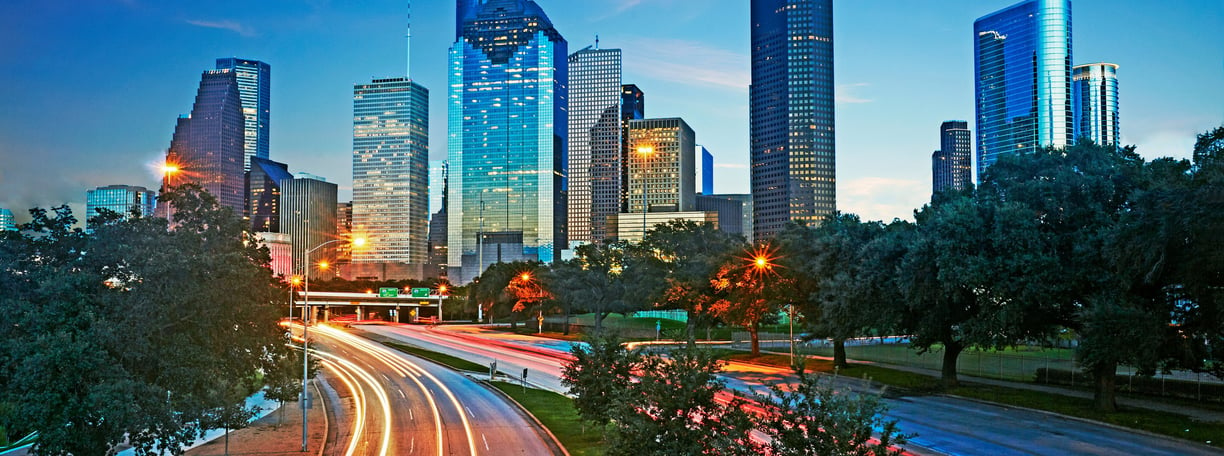What You Need to Know About Fire & Carbon Monoxide Detection
1/10/20254 min read


Houston Homeowners: What You Need to Know About Fire & Carbon Monoxide Detection
Houston homeowners face unique challenges when it comes to home safety. With the city's hot climate, hurricane seasons, and rapid urban development, ensuring your home is protected from fire and carbon monoxide (CO) dangers is critical.
A 2022 report from the Houston Fire Department found that home fires caused over 500 injuries and 25 fatalities in the city, while carbon monoxide poisoning incidents spiked during power outages caused by hurricanes. Understanding the risks and implementing the right safety measures can prevent your home from becoming part of these statistics. In July 2024, following Hurricane Beryl, Houston-area hospitals reported a significant rise in CO poisoning cases. The Houston Health Department recorded 116 carbon monoxide-related emergency visits between July 8 and July 11, 2024. Statewide, the aftermath of Hurricane Beryl led to approximately 400 hospitalizations due to CO poisoning, with at least two fatalities attributed to improper generator use during power outages.
In this guide, we’ll cover Houston-specific fire and CO risks, detection requirements, smart home integrations, and essential maintenance tips.
🔥 Houston’s Fire & Carbon Monoxide Risks
Houston's climate, urban layout, and energy use create specific safety concerns that homeowners must address:
✅ Extreme Heat & Electrical Fires – Houston’s high summer temperatures put extra strain on electrical systems, increasing fire risks. According to NFPA, faulty wiring is the second leading cause of home fires.
✅ Hurricanes & Power Outages – During storm-related blackouts, many homeowners rely on portable generators, which, if improperly used, lead to carbon monoxide poisoning. In 2021, Texas saw 11 CO-related deaths due to improper generator use after Winter Storm Uri.
✅ Urban Expansion & Aging Homes – Houston’s rapid growth means that some homes have outdated smoke detectors, while others have modern fire suppression systems. Knowing your home’s build year helps determine the right safety setup.
✅ Multi-Story Homes & CO Risks – Many Houston suburban homes have attached garages, which are a major source of carbon monoxide leaks if vehicles or gas-powered tools are left running.
🚨 Fire Detection Systems: What Houston Homeowners Must Know
Houston follows the International Fire Code with local amendments. Here’s what you need to ensure compliance and optimal safety:
🏠 Smoke Alarm Requirements in Houston
✅ Smoke alarms are required in every sleeping room.
✅ Additional detectors must be installed outside each sleeping area.
✅ At least one smoke detector per level of the home.
✅ New constructions must have interconnected, hardwired detectors with battery backups.
✅ Older homes with standalone units should upgrade to interconnected systems for enhanced protection.
🛑 Types of Smoke Detectors (Which One is Best for Houston Homes?)
Different fires require different detection methods:
Ionization Detectors – Best for fast, flaming fires (common in kitchens).
Photoelectric Detectors – Best for slow, smoldering fires (common in electrical fires).
Dual-Sensor Detectors – Best overall choice for Houston homes, combining both technologies.
👉 Recommendation: Install a mix of photoelectric and ionization detectors or a dual-sensor model for complete coverage.
⚠️ Carbon Monoxide: The Silent Killer
Carbon monoxide (CO) is particularly dangerous in Houston due to:
☠️ Gas Appliances – Water heaters, stoves, and furnaces can produce CO leaks.
☠️ Hurricane Generator Use – A major cause of CO poisoning during power outages.
☠️ Attached Garages – Running a car inside can lead to deadly CO buildup in living spaces.
🛑 CO Detector Requirements in Houston
You MUST have CO detectors if your home has:
✔️ Gas-powered appliances (furnace, stove, water heater).
✔️ An attached garage (even if you don’t store cars inside).
✔️ Fireplaces (gas or wood-burning).
📍 Where to Place CO Detectors
🚨 Outside each sleeping area
🚨 On every level of the home
🚨 Near fuel-burning appliances (but NOT directly above them)
👉 Avoid placing CO detectors near windows or vents, as airflow can affect accuracy.
🏡 Smart Home Fire & CO Safety: Best Options for Houston Homes
Modern smart systems can provide real-time alerts, remote monitoring, and automated emergency responses, making them ideal for Houston’s lifestyle.
🔗 Smart Fire & CO Detector Recommendations
🔥 Nest Protect – Sends alerts to your phone even if you’re not home.
🔥 Kidde Smoke & CO Detector – Works with Alexa and Google Home.
🔥 First Alert Z-Wave Smoke & CO Detector – Integrates with smart home security systems.
Why Go Smart?
✔️ Receive mobile alerts even if you evacuate during a hurricane.
✔️ Smart thermostats can shut down HVAC systems when smoke is detected.
✔️ Some systems auto-contact emergency services.
🛠️ Maintenance Checklist for Houston’s Climate
🔄 Quarterly Testing: Press the “test” button on all detectors every 3 months.
🧹 Monthly Cleaning: Houston’s high pollen counts can clog sensors—wipe detectors regularly.
🔋 Battery Replacement: Change batteries before hurricane season to ensure readiness.
🛠️ Annual Professional Inspection: Essential for homes near industrial areas or high humidity zones.
💡 Common Mistakes Houston Homeowners Make
❌ Placing CO detectors too high – CO is slightly lighter than air, and detectors work best at breathing height.
❌ Forgetting to replace old detectors – Smoke detectors last 8-10 years, and CO detectors 5-7 years.
❌ Not having enough detectors – Every floor should have both smoke and CO detectors.
🆘 Who to Call for Fire & CO Safety in Houston
📞 Houston Fire Department (Non-Emergency): [Insert Number]
📞 Texas Poison Control (For CO Exposure): 1-800-222-1222
🔥 Free Smoke Detector Program (Harris County): [Insert Link]
🏡 Learn More About Home Security in Houston: HomeSecurityHouston.org
🚀 Final Thoughts: Take Action Today!
Protecting your home from fire and carbon monoxide hazards isn’t just about following city codes—it’s about keeping your family safe.
✅ Take 5 minutes today to test your alarms.
✅ Upgrade to smart detectors for added security.
✅ Schedule a professional inspection if your alarms are outdated.
For more tips on protecting your home, visit HomeSecurityHouston.org—your local resource for fire safety, home security, and smart home technology.
Up to 15 sensors free for pre-wired homes or 6 sensors for non-wired homes. No substitutions allowed. Labor charges may apply. $99.00 customer installation charge. Basic plan requires phone line. 36-Month Monitoring Agreement required $45.99 per month ($1,655.64), 24-Month Monitoring Agreement required at $45.99 ($1,103.76) for California, including Quality Service Plan (QSP). Form of payment must be by credit card or electronic charge to your checking or savings account. Offer applies to homeowners only. Local permit fees may be required. Satisfactory credit history required. Certain restrictions apply. Offer valid for new Secure24 ADT Authorized Dealer customers only and not on purchases from ADT LLC. Other rate plans available. Cannot be combined with any other offer.
© 2018. All rights reserved.
2800 Antoine Dr # 2852, Houston, TX 77092


*Free Cybersecurity with SecureHomeNetwork.org Securehomenetwork is an authorized partner/dealer with ADT/Secure24. 36 month contract required.
